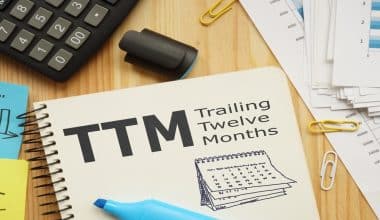Welcome to the world of business compliance! One crucial aspect of maintaining a company’s legal status in NY is the biennial statement, a recurring filing requirement that ensures the company’s information is up to date with the state authorities. To fulfill this obligation, businesses operating in NY must utilize the NYS Dept of State Biennial Statement e-Filing System provided by the NYS. This streamlined online platform simplifies the process of submitting the biennial statement, allowing businesses to file their reports promptly and efficiently. Whether you’re an established enterprise or a budding startup, understanding the significance of the biennial statement and utilizing the NYS Department of State’s filing system is essential for maintaining compliance and avoiding any unnecessary penalties.
Biennial Statement
A biennial statement is a document that certain business entities are required to file every two years. This statement provides updated information about the company’s ownership, structure, and contact details. It serves as a means for the state or governing authority to ensure that businesses maintain accurate and current records.
The content of a biennial statement may vary depending on the jurisdiction and the type of business entity. It typically includes details such as the company’s name, address, registered agent, and the names and addresses of its officers or directors. Some states may also require additional information, such as the company’s purpose, stockholders, or any changes to its business activities. Filing a biennial statement is a legal obligation for businesses. Failure to comply with the filing requirements can result in penalties or even the dissolution of the company.
Biennial Statement NY
In New York, a biennial statement is a mandatory filing for certain business entities every two years. This statement updates the company’s contact information, ownership, and structure as required by the state. Failure to file the biennial statement in New York can lead to penalties and potential dissolution of the business. The statement includes details such as the business name, address, registered agent, and information about officers or directors. Businesses in New York need to fulfill their biennial statement filing obligations to maintain compliance with state regulations and ensure accurate and up-to-date business records.
File Biennial Statement
Businesses are required to file a biennial statement to comply with state regulations and maintain accurate records. This statement updates the company’s contact information, ownership, and structure. Filing the biennial statement is crucial to avoid penalties and ensure ongoing compliance with the law. The statement typically includes details such as the business name, address, registered agent, and information about officers or directors. By promptly filing the biennial statement, businesses can demonstrate their commitment to fulfilling their legal obligations and maintaining up-to-date business records.
NYS Biennial Statement E Filing System
The NYS Biennial Statement e-filing system is an online platform provided by the state of New York. Businesses can use this system to electronically submit their biennial statements. The e-filing system streamlines the filing process, making it convenient and efficient for businesses to fulfill their reporting requirements. It allows businesses to update their contact information, ownership details, and other relevant information online. By using the NYS Biennial Statement e-filing system, businesses can ensure timely and accurate submission of their biennial statements, avoiding the need for paper-based filings and reducing administrative burden. The system provides a secure and reliable platform for businesses to comply with state regulations and maintain up-to-date records with ease.
NYS Dept of State Biennial Statement
To maintain conformance with state regulations, the NYS Department of State requires businesses to submit a biennial statement. This statement provides current details regarding the business’s ownership, structure, and contact information. The filing of the biennial statement with the New York State Department of State ensures that businesses maintain current and accurate records. However, businesses must comply with this requirement to avoid penalties and preserve their good standing with the state. Online filing of the biennial statement through the website of the NYS Department of State is a convenient and expedient way for businesses to fulfill their reporting obligations. Businesses demonstrate their commitment to transparency and conformance with state regulations by submitting the biennial statement to the NYS Department of State.
Do I Have to File Biennial Statement?
Whether or not you have to file a biennial statement depends on the regulations of your specific jurisdiction. However, different states have different requirements for business entities. It is important to research and understand the laws and regulations of your state to determine if you are obligated to file a biennial statement. Failing to comply with filing requirements can also result in penalties or the loss of good standing with the state. It is advisable to consult with a legal professional or the relevant state authorities. This is to clarify your obligations and ensure compliance with the necessary filing requirements.
What Is the Purpose of a Biennial Report?
A biennial report’s objective is to provide updated information about a business entity to the appropriate government authorities. However, this report guarantees that the state has up-to-date information about the company’s ownership, structure, and contact information. The government can also check compliance with legislation, preserve openness, and follow changes in the business landscape. This is by mandating enterprises to publish biennial reports. The report is also used to validate the existence of the company. It also confirms its compliance with legal requirements and ensures it is operating within the limitations set by the regulatory authorities. It also protects customers and stakeholders by making credible and up-to-date information about the corporate entity available.
What Is the Difference Between Biennial Report and Annual Report?
The fundamental distinction between a biennial report and an annual report is the regularity with which they are submitted. A biennial report is submitted every two years, whereas an annual report is submitted once a year. Both reports serve significant functions in delivering information about a business entity, but their scope and focus differ.
Government authorities often need a biennial report to ensure accurate record-keeping and regulatory compliance. It also contains updated information regarding the ownership, structure, and contact information of the company entity. They also report allow the government to track changes in the business landscape and guarantee that businesses are functioning within legal boundaries. However, the purpose of biennial reports is largely to ensure transparency and to verify the existence and legitimacy of enterprises. While they may not go into financial details, they serve an important function in assisting government authorities in monitoring compliance and protecting consumers and stakeholders.
An annual report, on the other hand, is a thorough document that provides a complete assessment of a company’s financial performance, accomplishments, and prospects. It extends beyond the boundaries of a biennial report by covering financial statements such as income and balance sheets, as well as cash flow statements. Annual reports are also used by organizations as a communication tool to highlight their financial health, strategic initiatives, and corporate governance procedures. They are frequently issued to shareholders, prospective investors, and other stakeholders to provide information on the company’s activities and performance. Annual reports are critical for establishing investor trust and credibility, attracting possible partners, and displaying transparency in corporate procedures.
Do I Need to Renew My LLC Every Year in New York?
Yes, as an LLC owner in New York, you are required to renew your LLC registration every year. This annual renewal ensures that your LLC remains in good standing with the state. However, the renewal process involves filing a biennial statement, updating your business information, and paying the necessary fees. Failing to renew your LLC on time may also result in penalties, loss of good standing, and dissolution of your business. It is essential to stay informed about the renewal deadlines and fulfill the requirements to maintain the legal status and compliance of your LLC in New York.
Do I Need an Operating Agreement for My LLC in NY?
Yes, it is highly recommended to have an operating agreement for your LLC in New York. Although not required by state law, an operating agreement is a crucial document that outlines the internal operations, rights, and responsibilities of LLC members. It helps establish clear guidelines for decision-making, profit distribution, management structure, and dispute resolution. However, having an operating agreement in place provides legal protection. It also defines expectations among members and helps prevent misunderstandings or conflicts in the future. It is advisable to consult with a legal professional to draft a comprehensive operating agreement. However, that is tailored to your specific business needs and complies with the laws of New York.
What Is a Biennial Example?
An example of a biennial occurrence is the World Expo, which takes place every two years. The event showcases innovations, cultural exchanges, and economic collaborations between countries. Another example is the Olympic Games, held biennially and bringing together athletes from around the world. These events demonstrate how a biennial schedule allows for sufficient time to plan, organize, and also build anticipation among participants and spectators. The biennial nature of these examples allows for a balance between maintaining interest and excitement while providing ample preparation time for the next edition of the event.
What Happens Every Biennial?
Every biennial period, various events, conferences, and exhibitions take place, providing opportunities for networking, learning, and showcasing innovations. Organizations may also hold biennial meetings or conventions to discuss industry trends, share knowledge, and foster collaboration. Biennial elections are conducted in some countries or organizations to select new leaders or representatives. Additionally, certain plants and flowers bloom every two years, attracting attention with their vibrant colors and fragrances. The biennial cycle allows for periodic renewal, planning, and the anticipation of significant events or milestones in various domains, bringing excitement and fresh opportunities every two years.
FAQs
How do I prove residency in NY?
Acceptable proofs of residency include a New York State license, permit, or non-driver id card, a recent bank statement, or a recent pay stub confirming your current New York State address.
What is the best proof of residency?
What forms of identification and proof of address are acceptable…
To verify residency, you can use a utility bill, credit card statement, lease agreement, or mortgage statement. Print a billing statement from your online account if you’ve gone paperless.
What exactly does the term "state of residence" mean?
For the purposes of administering United States Code 18 U.S.C. 921, et seq., the state of residence is the state in which an individual resides. An individual resides in a state if he or she is present in that state with the goal of establishing a home there.
Related Articles
- INCOME STATEMENT: Formats, Examples, and How To Prepare One
- FINANCIAL STATEMENT OF A COMPANY: Best 2023 Samples & Templates to Learn From
- INCOME STATEMENT ACCOUNTS: Definition, Examples, How to Read & Use It
- FINANCIAL STATEMENT: What Is It, Examples, Types & Analysis
- HOW TO GET A BANK STATEMENT FROM YOUR BANK






